Kansas Rental Agreement

A Kansas rental agreement is a legal contract between a landlord overseeing a rental property and a tenant who wishes to use it. Kansas landlord-tenant law governs these agreements; rental terms must be within the limits allowed by law.
Kansas Rental Agreement Types
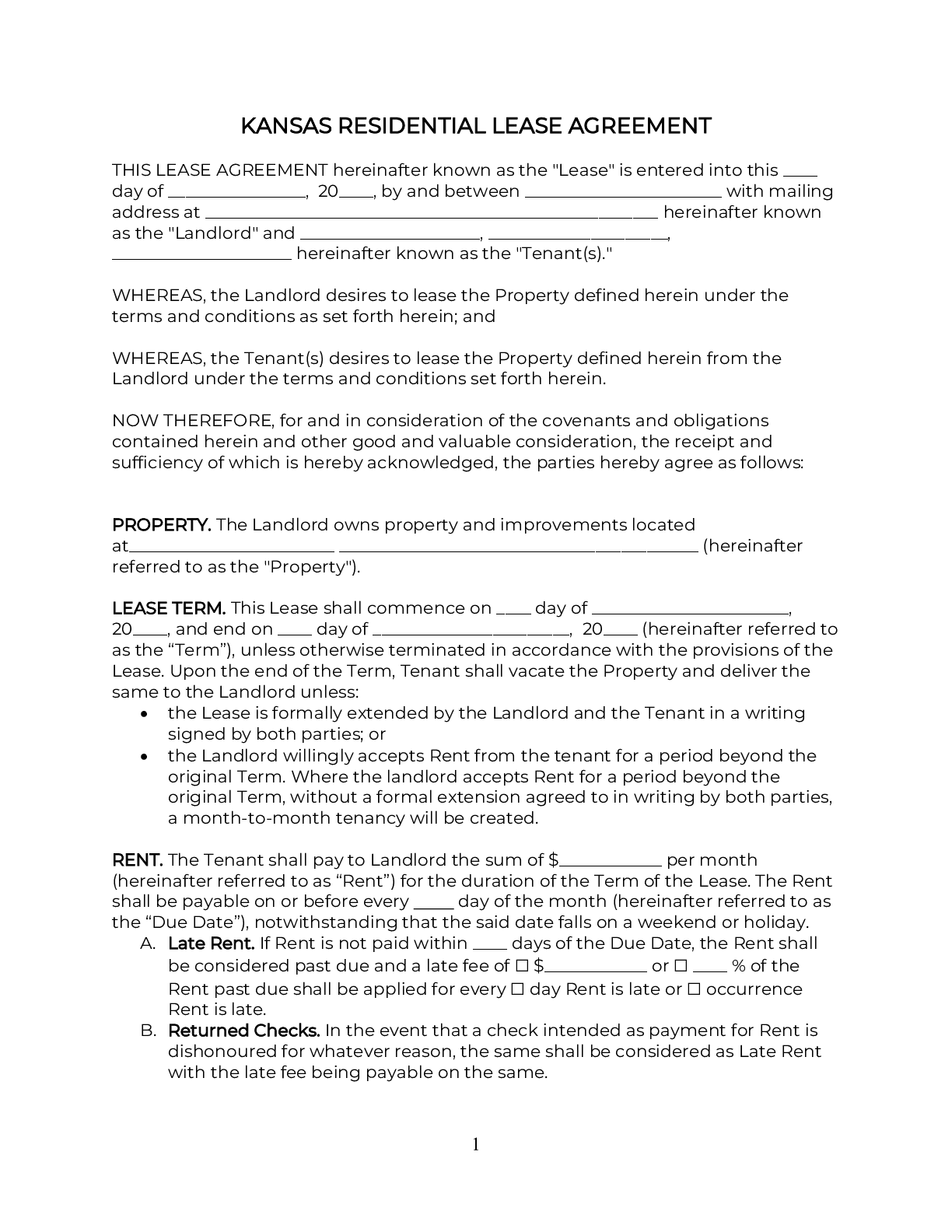
A Kansas residential lease agreement (“rental agreement”) is a legal contract for a tenant to rent a residential property from a landlord, subject to terms and conditions agreed by all parties.
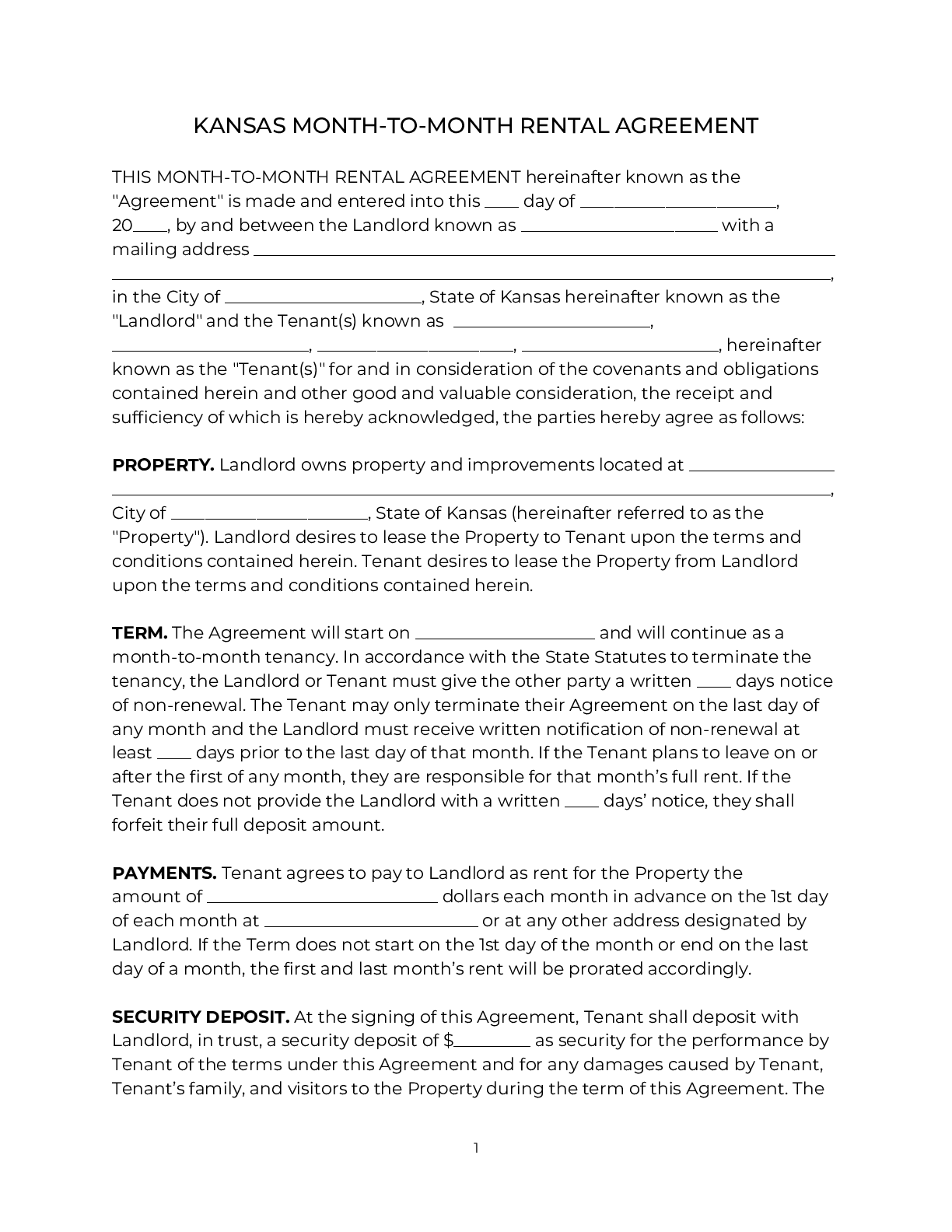
A Kansas month-to-month lease agreement is a contract (not necessarily written) where a tenant rents property from a landlord. The full rental term is one month, renewable on a month-to-month basis.
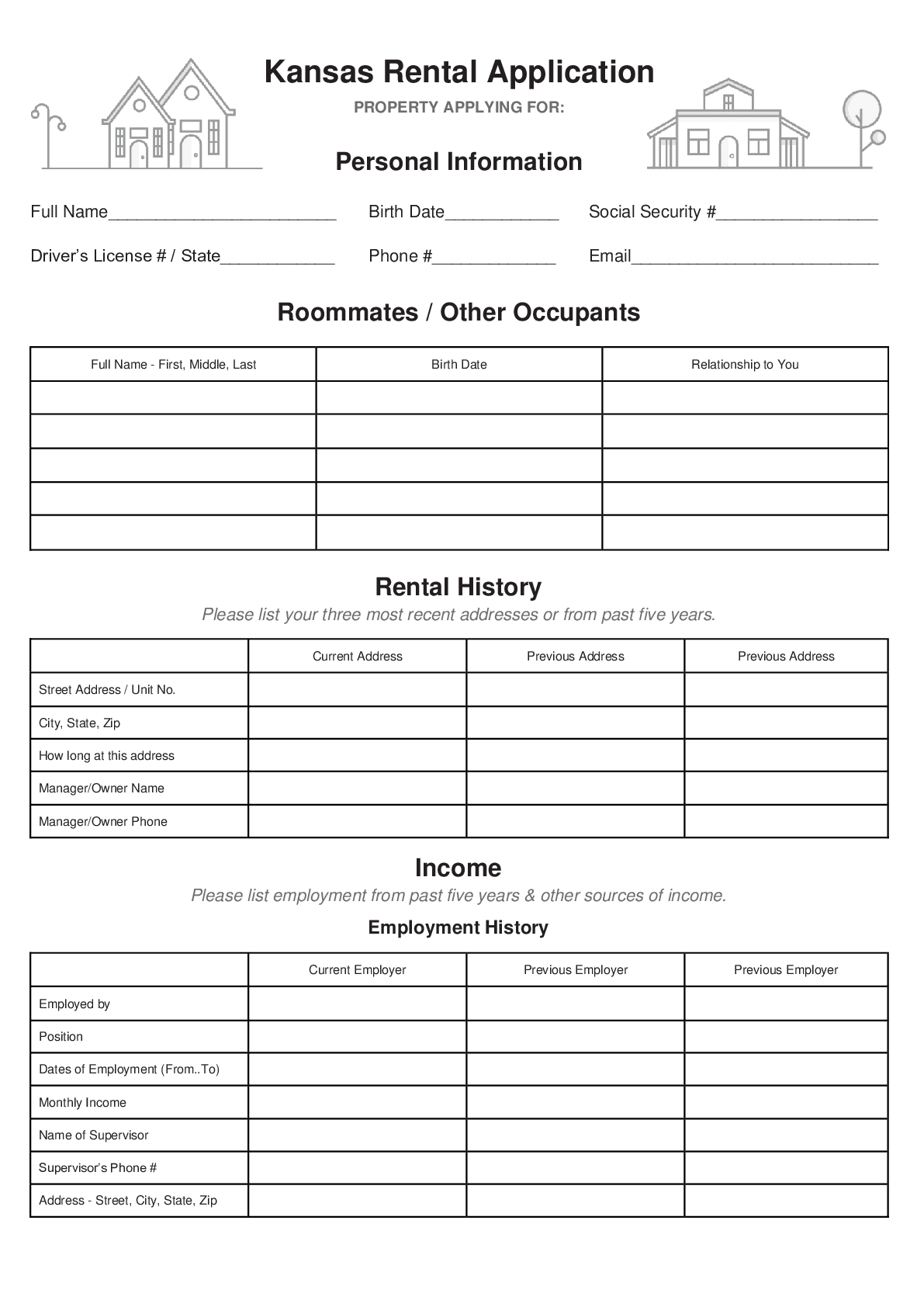
Kansas landlords may use a rental application form to screen prospective tenants. A rental application collects information relating to finances, rental history, and past evictions.
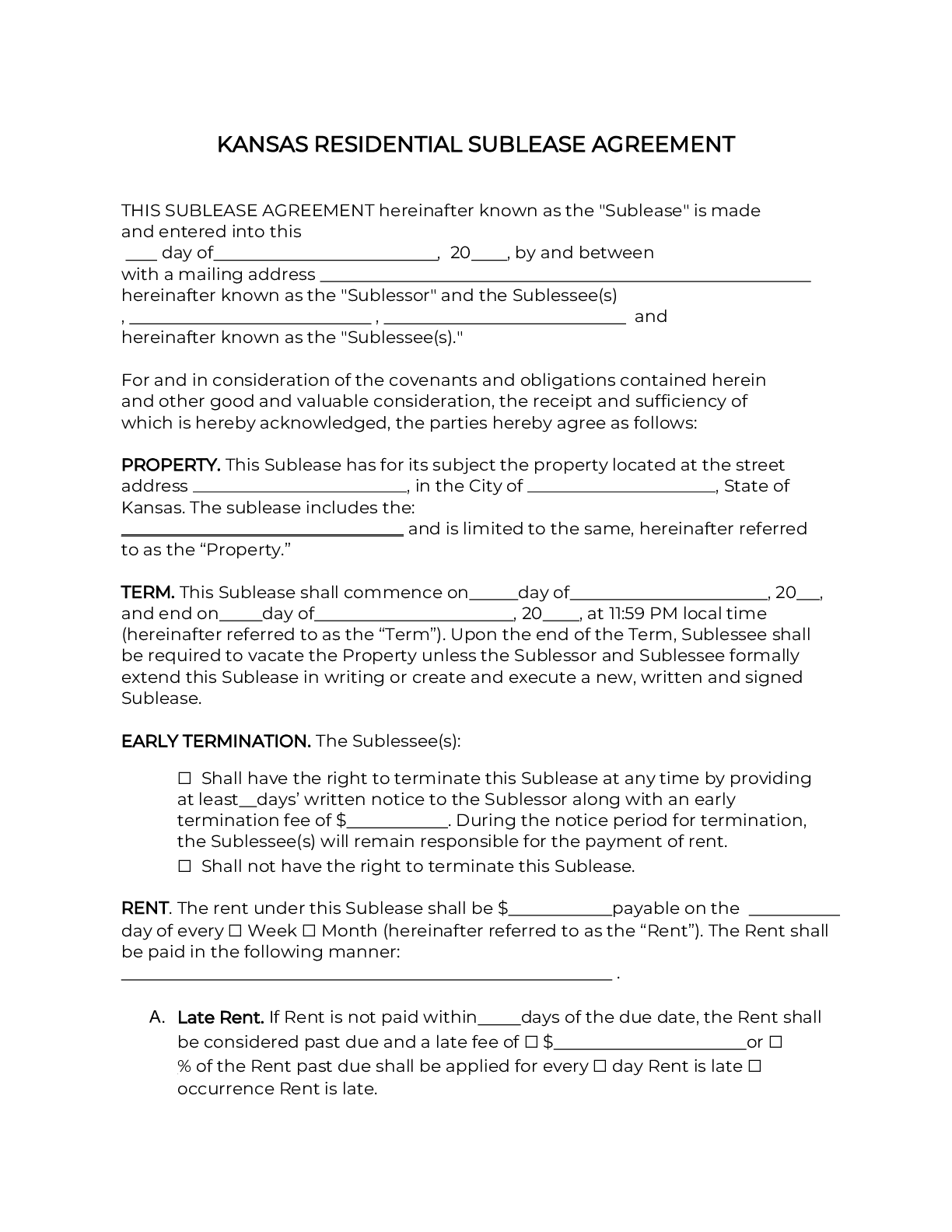
A Kansas sublease agreement is a legal contract where a tenant ("sublessor") rents (“subleases”) property to a new tenant (“sublessee”), usually with the landlord’s permission.
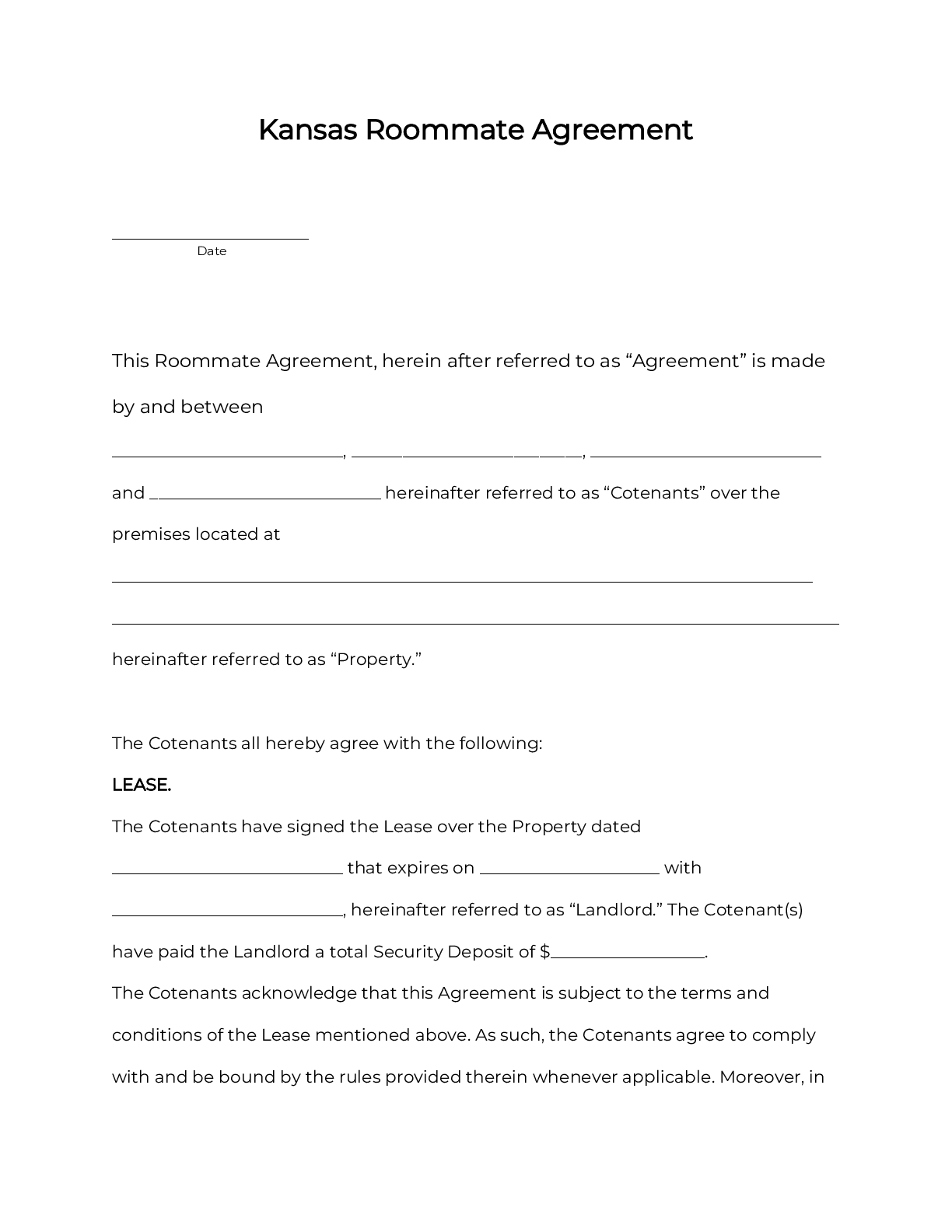
A Kansas roommate agreement is a legal contract between two or more people (“co-tenants”) who share a rental property according to rules they set, including for things like splitting the rent. This agreement binds the co-tenants living together, and doesn’t include the landlord.
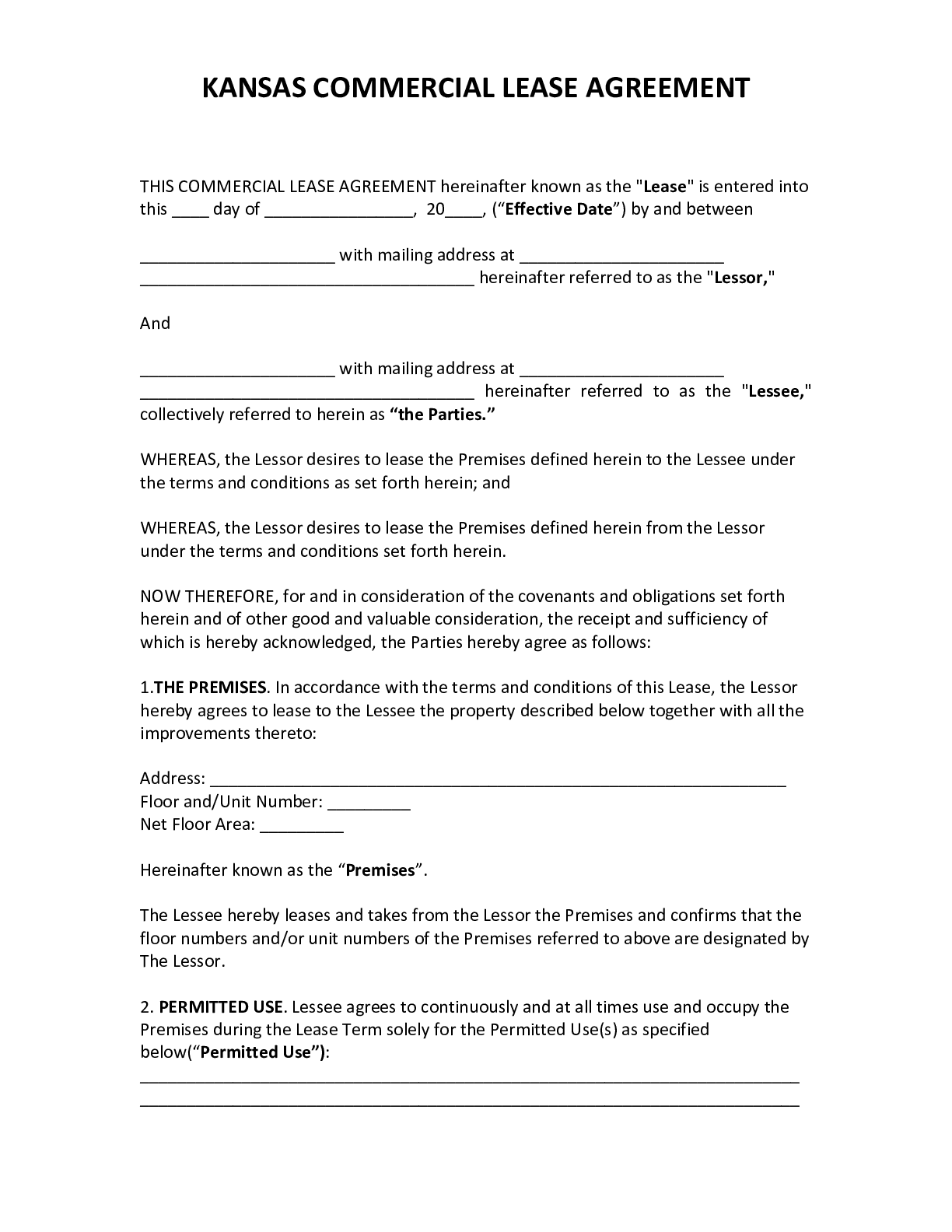
A Kansas commercial lease agreement is a legal contract arranging the rental of commercial space between a landlord and a business.
Common Rental Agreements in Kansas
- Kansas Association of Realtors Agricultural Farm Building Lease Agreement – this template is for use by members of the Kansas Association of Realtors only. It is used for leasing agricultural farm buildings or livestock facilities. It therefore contains specific provisions for this context, such as cash rent payments and ensuring clean water supply for livestock.
Kansas Required Residential Lease Disclosures
- Landlord’s Name and Address(required for all leases) – Kansas leases must contain the name and address of the landlord or authorized agent. This enables smooth communication of any important legal notice.
- Move-In Checklist(required for all leases) – Kansas landlords must provide a move-in checklist to new tenants within 5 days of move-in, so both parties can agree about damages existing on the rental property. This allows accurate deductions from the security deposit later.
- Lead-Based Paint Disclosure(required for some leases) – For any property built before 1978, federal law requires that a Kansas residential lease must contain a lead-based paint disclosure with an EPA informational pamphlet, plus notice of any lead hazards on the property.
To learn more about required disclosures in Kansas, click here.
Kansas Landlord Tenant Laws
- Warranty of Habitability – Kansas landlords can only rent out habitable property, which means providing certain features essential to basic health and safety. This includes things like heat, plumbing, electricity, and sound structural elements. Landlords must repair any issues within 14 days after proper notice from the tenant. Failure to repair lets a tenant sue the landlord or terminate the lease. Tenants in Kansas aren’t allowed to repair and deduct, or withhold rent.
- Evictions – Kansas landlords may evict for rent default, lease violations, or illegal acts, among other things. Before filing eviction, landlords must serve tenants with prior notice to pay, comply, or quit, depending on the eviction type. This means most evictions in Kansas take between a few days to a little over a month.
- Security Deposits – Kansas caps security deposits at a maximum of one month’s rent for unfurnished properties and 1 1/2 months’ rent for furnished properties. A landlord get 30 days after lease termination to return any unused portion to the tenant, or 14 days after making deductions from the deposit (whichever is earlier).
- Lease Termination – Kansas lets tenants terminate a month-to-month with 30 days of advance notice. A fixed-term lease can’t be terminated early without active military duty, landlord harassment, uninhabitable property, or domestic abuse.
- Rent Increases and Fees – Kansas landlords can raise rent by any amount, whenever they want, with no particular requirements for justification or advance notice. There is likewise no cap on fees, except for returned check fees, which are limited to $30 per check.
- Landlord Entry – Kansas landlords may enter rental property for purposes reasonably related to the tenancy, like maintenance and inspections. The state does not specify entry requirements, which means that a landlord can enter at reasonable times of day using reasonable advance notice (customarily at least 24 hours), except in emergency situations.
- Settling Legal Disputes – Kansas allows small claims courts to hear landlord-tenant disputes, as long as the amount in controversy is under $4,000. The state does not allow evictions in small claims. The statute of limitations in Kansas is five years for written contracts, three years for oral contracts.
To learn more about landlord tenant laws in Kansas, click here.








